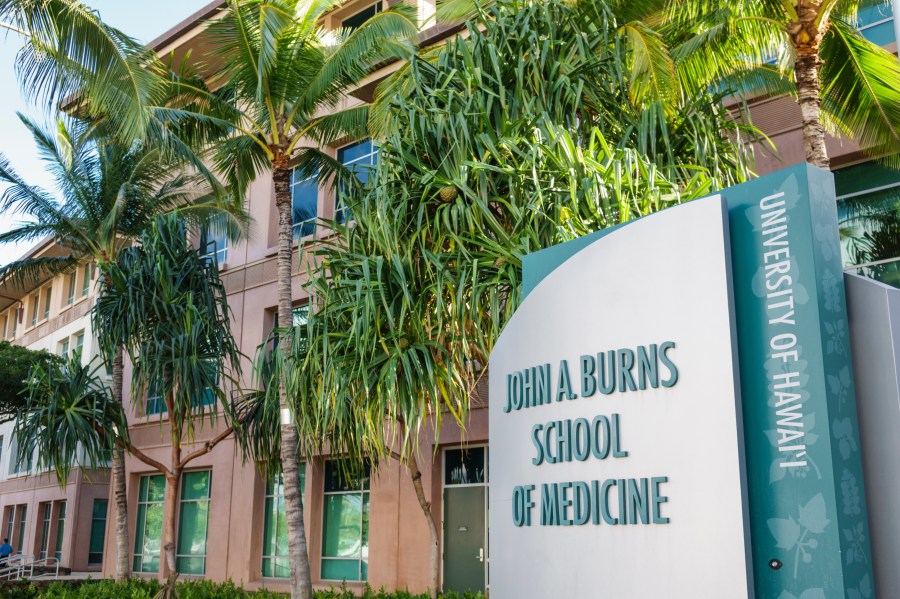HONOLULU (KHON2) — The John A. Burns School of Medicine (JABSOM) at the University of Hawaiʻi has embarked on a significant mission to advance diabetes research and workforce development.
This effort is spearheaded by Dr. Marianna Gershenson, the Associate Dean for Research and a tenured professor in the Department of Cell and Molecular Biology.
With a renewed grant of $11.7 million from the National Institutes of Health, bringing the total funding to $23 million since 2017, the university is poised to make substantial strides in understanding and combating diabetes.
This funding aims to support cutting-edge research and train a new generation of scientists in Hawaiʻi.
Dr. Gershenson highlighted the critical need for this research, noting that “approximately 10% of individuals in Hawaiʻi are diabetic, and approximately 37% are prediabetic.”
This alarming statistic underscores the importance of their work, especially given the higher rates of diabetes among Native Hawaiians, Pacific Islanders and Filipinos.
The research center is dedicated to studying the mechanisms that transition individuals from insulin resistance to diabetes and focusing on the complications such as kidney, heart, and brain diseases.
A key figure in this research initiative is Dr. Kathryn Schunke, an Assistant Professor in the Department of Anatomy, Biochemistry and Physiology. Dr. Schunke’s work centers on diabetic cardiomyopathy, specifically diabetic cardiac autonomic neuropathy (CAN).
She explained, “In this complication, the brain doesn’t signal to the heart appropriately, which can lead to life-threatening complications in the cardiovascular system.”
Dr. Schunke is developing therapies targeting the brain to decrease mortality in diabetic patients with CAN by investigating neurotransmitter signaling and neuron damage in the peripheral nervous system. Her research has identified a subset of neurons expressing oxytocin, which they are targeting to improve heart function.
Supporting this groundbreaking work is Anna Nilsson, a third-year Ph.D. student in Dr. Schunke’s lab. Nilsson’s journey into higher education and research began after she gained valuable experience post-undergrad.
“I felt like there was a lot more that I could accomplish if I obtained higher education,” Nilsson said. She chose the University of Hawaiʻi for its supportive environment and the opportunity to be part of pioneering research. “I feel really supported by the program. All my peers are very supportive as well, and I feel like the type of research that we’re able to do is very interesting,” she shared.
Nilsson’s experience highlights the importance of mentorship and community in academic growth.
“Although the lab is new and small, I do feel very supported,” she emphasized. She credits the diabetes core network and the supportive faculty for her positive experience. The exposure to various opportunities, including conferences, has been invaluable for her career development.
“My mentor and the program really support students going to conferences and things like that where you can explore the type of research that’s going on and also just what career options you might have moving on from your Ph.D.,” Nilsson added.
When asked about advice for high school students considering a career in science, Nilsson stressed the importance of gaining experience.
“I would definitely recommend getting as much experience as you can because that’s really the only way that you can truly know if science is right for you and if this is something that you would want to pursue,” she advised.
For undergraduate students torn between science and other seemingly lucrative professions, Nilsson encouraged following one’s passion.
“If you have a passion for science or an interest in science, I think that can take you very far,” she said, emphasizing that the journey, despite its extra steps, is rewarding and filled with fascinating opportunities.
The workforce development aspect of the diabetes research center is not just about generating new knowledge but also about nurturing the next generation of scientists who will continue this important work.
Dr. Gershenson and her colleagues are committed to creating an environment where young researchers like Nilsson can thrive and make significant contributions to the field.
This dedication ensures that the research center not only advances scientific understanding but also builds a robust pipeline of skilled professionals equipped to address the diabetes epidemic in Hawaiʻi and beyond.
JABSOM’s diabetes research center, under the leadership of Dr. Gershenson, Dr. Schunke and supported by passionate students like Nilsson, exemplifies a comprehensive approach to tackling diabetes through innovative research and robust workforce development.
The continued support and funding from the NIH are critical to sustaining and expanding these efforts, ultimately benefiting the people of Hawaiʻi and contributing to global health advancements.
